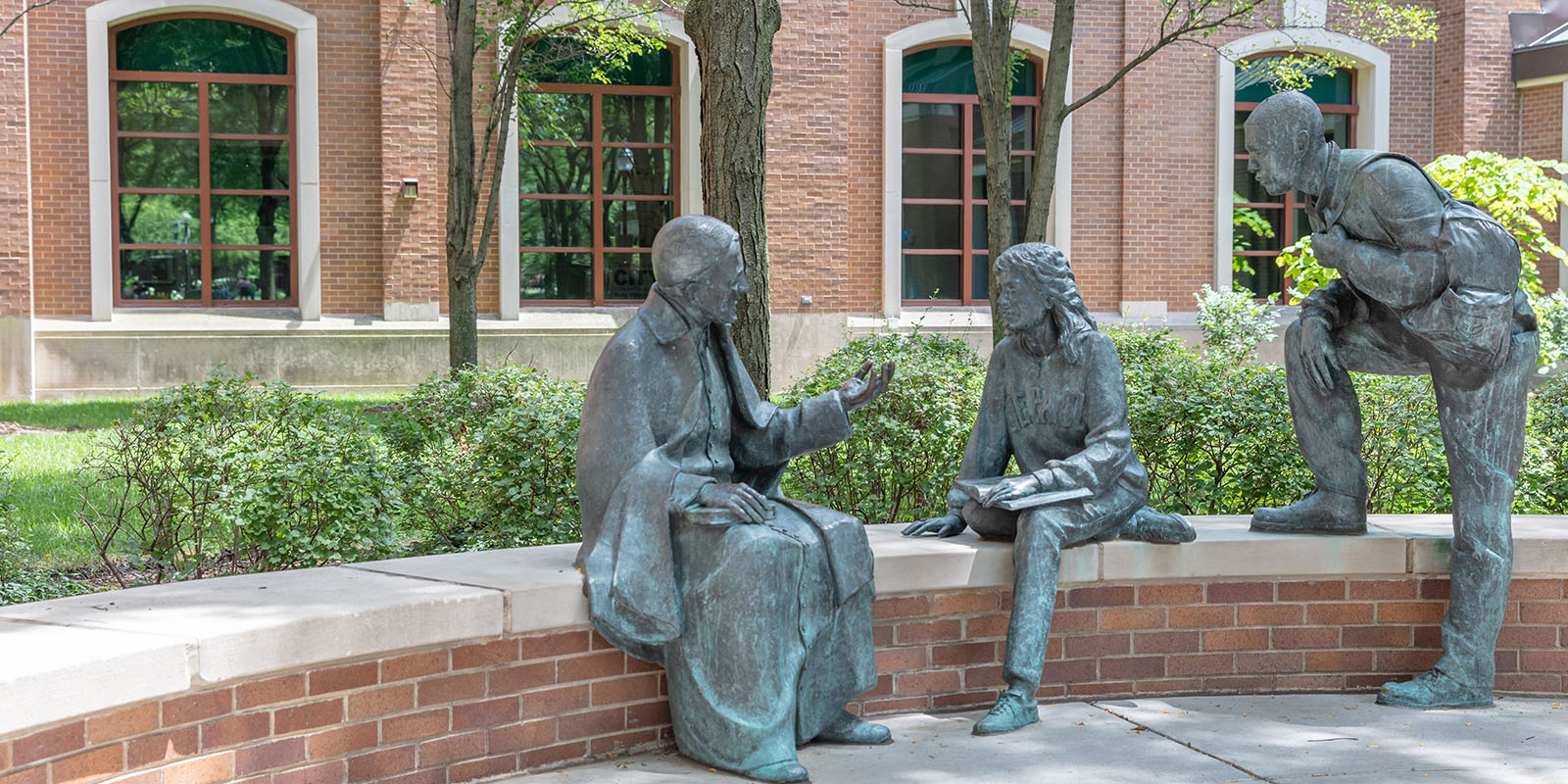
CHICAGO — This week, Chicago Mayor Lori Lightfoot declared a state of
emergency as more than 8,000 migrants have arrived to the city since Texas
began bussing them north last year. DePaul University faculty experts are
available to provide context and insight on forced migration, resettlement
and immigration policy. Their expertise is wide-ranging, including
international relations, law and psychology. Several are members of the
DePaul Migration Collaborative
, which leverages the power of interdisciplinary scholarly collaboration to
pursue dynamic, community-engaged projects, advocacy and research.
Contact experts directly via email or, for assistance arranging interviews,
email newsroom@depaul.edu or call
312-241-9856.
Sioban Albiol, Director, Asylum & Immigration Law Clinic, College
of Law; Co-Director, DePaul Migration Collaborative
salbiol@depaul.edu
Through partnerships with more than two dozen community groups, Sioban
Albiol and the law clinic advocate on behalf of immigrants, refugees and
asylum-seekers throughout Illinois, focusing specifically on increasing
access to justice for low-income immigrants and refugees.
- U.S. asylum law
- Family-based immigration
- Challenges low-income immigrant and refugee face in access to
information and legal representation
- Partnerships with refugee resettlement organizations
Kathleen Arnold, Director of Refugee and Forced Migration Studies
Program
karnol14@depaul.edu
Kathleen Arnold researches and teaches courses on the public health impact
of forced migration, immigration law and human rights. She has appeared on
WTTW’s
“Chicago
Tonight” to discuss how climate change impacts U.S. and global
migration.
- U.S. refugee program
- What community organizations in Chicago are doing to help resettle
migrants
Allison Brownell Tirres, Associate Professor of Law, College of Law
atirres@depaul.edu
Allison Brownell Tirres studies and teaches immigration law and policy, and
constitutional law. Her research focuses on immigration, citizenship and
civil rights in both historical and contemporary perspectives.
- History of the system of immigrant and refugee admissions
- Legal process for immigrant and refugee admissions
- The challenges the current immigration system faces in meeting the
needs of migrants
Thomas Mockaitis, Professor of History
tmockait@depaul.edu
Thomas Mockaitis is a internationally renowned expert on terrorism and
extremism, and he teaches in the Refugee and Forced Migration Studies
program. “We desperately need a comprehensive, long-term immigration
strategy that considers our ability to accommodate immigrants and addresses
the root causes of forced migration. Instead, we have seen a series of ad
hoc responses to each ensuing crisis,” Mockaitis wrote recently in
The Hill
.
- History of migration in the U.S.
- Extremist rhetoric and domestic terrorism targeting minoritized
populations
Craig Mousin, Ombudsperson, Faculty, Refugee and Forced Migration
Studies Program, Grace School of Applied Diplomacy
cmousin@depaul.edu
Craig Mousin teaches refugee and immigration law at the College of Law. He
is a member of the Leadership Council of the National Immigrant Justice
Center and a former president and board member of the Immigration Project
of downstate Illinois.
- Asylum law and international refugee law with a particular
emphasis on the consequences of religious persecution and remedies
available to persons seeking asylum and safe haven
Shailja Sharma, Professor; Co-Director, DePaul Migration Collaborative
ssharma@depaul.edu
Shailja Sharma works on migration, refugee flows and diaspora. She recently
wrote an
op-ed in the Chicago Tribune
arguing the migration crisis is “manufactured”, and one we can solve.
- Violence, displacement and citizenship
- Immigration policy and history in the U.S.
Shana Wills, Part-Time Faculty, Refugee and Forced Migration Studies
Program
swills@depaul.edu
Shana Wills is the founder and board president of
Refugee Education & Adventure Challenge
(REACH), an organization that works with refugee youth ages 10-18 and
provides academic, leadership and social-emotional learning support and
outdoor education opportunities.
- Effect of migration on families, adolescents and children
- Needs refugees will have upon arriving in Chicago
- How the U.S. refugee program works and trouble spots within the
program
- Why it’s a moral imperative to give Afghans refuge in the U.S.
- Groups doing refugee work in Chicago
###
Media contact:
312-241-9856 (Media line)